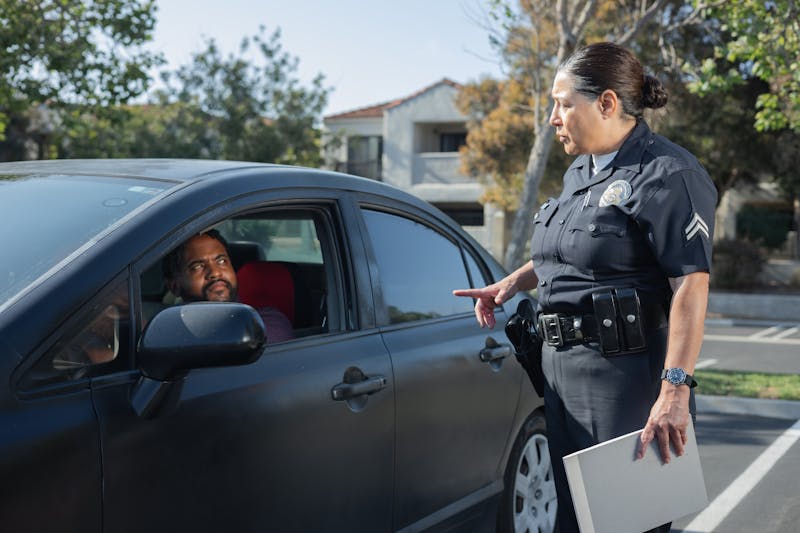What You Need to Know About California Implied Consent Law | Vehicle Code 23612

When you get behind the wheel in California, you’re not just agreeing to follow traffic laws – you’re also implicitly consenting to chemical testing if you’re suspected of driving under the influence. This concept, known as implied consent, is a crucial part of California’s DUI laws that every driver should understand.
What is California’s Implied Consent Law?
California Vehicle Code 23612 lays out the state’s implied consent law. In essence, it states that by driving on California roads, you’ve already agreed to submit to chemical testing if you’re lawfully arrested for DUI. This law applies to all drivers, whether you’re a California resident or just passing through.
But what does this mean in practice? Let’s break it down.
Who is subject to implied consent?
If you’re driving a vehicle in California, you’re subject to implied consent laws. This includes cars, motorcycles, and even bicycles. It doesn’t matter if you’re on a highway, city street, or private road – if you’re operating a vehicle, these laws apply to you.
Types of chemical tests covered
The law covers three types of chemical tests:
- Blood tests
- Breath tests
- Urine tests (in certain circumstances)
Each of these tests is designed to measure the amount of alcohol or drugs in your system. The choice of test can depend on various factors, including the availability of testing equipment and whether drugs other than alcohol are suspected.
Chemical Testing Procedures
When it comes to the actual testing, here’s what you need to know:
Blood tests
A blood test is considered the most accurate method of determining blood alcohol concentration (BAC). It’s typically performed by a trained phlebotomist at a medical facility or police station.
Breath tests
Breath tests are the most common type of chemical test in DUI cases. They’re quick, non-invasive, and can be performed roadside using portable devices or at the police station with more sophisticated equipment.
Urine tests
Urine tests are less common and are typically only used when blood and breath tests are unavailable or when drug use is suspected.
Can You Refuse a Breath Test or Field Sobriety Test?
When it comes to DUI stops in California, many people wonder if they have the right to refuse tests. The answer isn’t straightforward, as it depends on the type of test and the stage of the investigation.
Field Sobriety Tests
Contrary to what some believe, you have the right to refuse field sobriety tests. These are the physical tests officers ask you to perform roadside, like walking a straight line or following a pen with your eyes.
You’re not legally required to perform these tests, and you can politely decline without penalty. Remember, these tests are often used to gather evidence against you, so refusing them may be in your best interest.
Preliminary Alcohol Screening (PAS) Test
The PAS test, often confused with the official breath test, is the handheld breathalyzer used roadside. Most drivers can refuse this test without penalty, except for those under 21 or on DUI probation.
Chemical Tests After Arrest
Here’s where it gets tricky. If you’re lawfully arrested for DUI, California’s implied consent law kicks in. This means you’re required to submit to either a breath or blood test. Refusing at this stage comes with serious consequences:
- Automatic license suspension for at least one year
- Possible use of your refusal as evidence of guilt in court
- Enhanced penalties if convicted of DUI
It’s important to note that while you can refuse, the officer may obtain a warrant for a forced blood draw anyway.
At The Nieves Law Firm, we understand these situations can be confusing and stressful. If you’re facing a DUI charge or have questions about your rights during a traffic stop, don’t hesitate to reach out to us.
Rights and Obligations Under Implied Consent
While the law requires you to submit to testing, you do have some rights in the process. In most cases, you have the right to choose between a blood or breath test. However, if drug use is suspected, you may be required to take a blood test.
The arresting officer must inform you of the implied consent law and the consequences of refusing a test. They should also advise you that you have the right to consult with an attorney before deciding whether to take the test.
Exceptions to California’s Implied Consent Law
There are a few situations where you might be exempt from certain tests:
- If you have hemophilia, you’re exempt from blood tests.
- If you’re taking anticoagulants for a heart condition, you’re also exempt from blood tests.
In these cases, you’ll be required to complete a urine test instead.
DUI Enhancements Due to Refusal
Refusing a chemical test can significantly impact your case. Here’s how:
Administrative penalties
If you refuse a test, the DMV can suspend your license for one year – even if you’re not convicted of DUI. For a second refusal within 10 years, the suspension increases to two years, and for a third, it’s three years.
Criminal penalties
In court, test refusal can be used as evidence against you. It can also lead to enhanced penalties if you’re convicted of DUI, including additional jail time and longer DUI school requirements.
How refusal affects DUI prosecution
While refusing a test might seem like a way to avoid providing evidence, it often makes defending a DUI case more challenging. Prosecutors can argue that your refusal shows consciousness of guilt, and without test results, it’s harder to challenge the officer’s observations of impairment.
Challenging a Chemical Test Refusal in California
There are situations where a refusal might be challenged:
- If the officer didn’t properly advise you of the implied consent law
- If you were physically unable to complete the test
- If the officer didn’t give you a choice between blood and breath tests (unless drug use was suspected)
If you’re facing a DUI charge, especially one involving test refusal, it’s critical to get experienced legal help. At The Nieves Law Firm, we understand California’s DUI and implied consent laws. We’ve helped numerous clients handle these challenging situations, and we’re ready to put our knowledge to work for you.
Don’t let a DUI charge or test refusal jeopardize your future. Contact The Nieves Law Firm today for a consultation. Let’s discuss your case and explore your options for the most favorable outcome.



